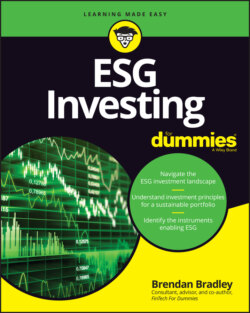Читать книгу ESG Investing For Dummies - Brendan Bradley - Страница 49
ESG momentum importance
ОглавлениеIn addition to considering current ESG ratings, investors looking for positive alpha generation within an ESG framework can seek changes in ESG ratings. This is known as ESG momentum, and various studies have shown that using this strategy helps outperform the established benchmarks. Positive ESG rating momentum is defined as when a company’s ESG rating has improved by more than 10 percent on the previous year. On the contrary, negative ESG rating momentum occurs when a company’s ESG rating has fallen by more than 10 percent on the previous year, and neutral momentum occurs when the rating remains unchanged or within the –10 to +10 percent range.
The principle behind an ESG momentum strategy is that future stock performance is connected to a change in the ESG quality of the company and potentially a reduction in future liabilities. Various studies have shown that buying more stocks with improving ESG ratings can lead to investment outperformance. The premise of this idea is that companies with lower ESG scores have more improvement potential and should therefore be included in a fund’s investment universe, although this does introduce timing issues on when the optimal time is to invest in such stocks. However, this is no different from the challenges facing active fund managers within a traditional investment approach.
The contrary opinion is that investors should view companies that embrace new, improved ESG policies with skepticism, and ought to focus on companies with a proven ESG record. Moreover, changes in the methodology of a data provider could create false momentum signals. To counter this, investors need to consider using multiple data providers to blend the momentum score. This helps reduce variations and gives a clearer picture of ESG momentum.
